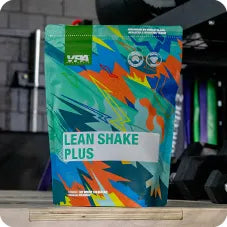Your Cart is Empty
The Different Protein Types
May 01, 2019 5 min read

Protein types
Protein provides the building blocks of skeletal muscle via their constitute amino acids. There are a number of different types of protein available and there are as many more variables to consider when selecting proteins including quality, digestion rate and source.
Complete proteins contain all 20 amino acids and these are made up of 9 essential amino acids (EAAs) and 11 nonessential amino acids (NEAAs). EAAs cannot be produced by the body and must be gained through ones diet. Of the EAAs, 2-3 grams of leucine is required to optimize protein synthesis. There are a number of different ways to determine protein quality and these include chemical score, protein efficiency ratio, biological value and the most commonly used protein digestibility-corrected amino acid score (PDCAAS).
This brings us to the various types of protein available. There are plenty around and some of these include milk based protein, egg based protein, meat protein and plant based protein sources.
Milk proteins
These types contain the highest score on the PDCAAS rating system and generally contains more leucine than any
other protein source. Milk can be divided into two protein classes – whey and casein.
Whey protein (isolate and concentrates) contain approximately 11% leucine with casein containing around 9%.
Whilst both are high quality protein products, the distinct difference between them is the rate of digestion (1). Whey
protein is water soluble, mixes easily and is rapidly digested whereas casein is water insoluble, coagulates in the gut
and is digested slower than whey (2). Given the speed of digestion, whey is the preferred source for those looking to
optimize lean muscle gains around workout with casein a preferred source when there will be significant time
between meals ie. before bed.
Milk based proteins in particular whey, contains a number of key health benefits also. Whey contains biologically
active peptides. β-Lactoglobulin and α-lactalbumin comprise approximately 75% of bovine whey proteins and is not
only high in EAAs but plays a role in enhancing both the lymphatic and immune system (3).
Egg Proteins
Egg is often referred to as the ideal protein source due to its amino acid profile has been used as the standard for
comparing other dietary proteins (2). Eggs rate highly on the digestability scale so combined with its amino acid
content, they are an excellent source of protein. There was criticism a while back for their cholesterol content but
modern research has shown that the relationship between egg consumption and coronary heart disease is lacking (4).
One large egg has approximately 75 kcal and 6g protein but only 1.5g saturated fat. One large egg white has
approximately 16 cal with 3.5g protein and is fat free. In addition to being a cost effective, high quality source of
dietary protein, eggs have been classed as a functional food meaning they provide a health benefit beyond basic
nutrition (5).
Meat Proteins
Meat proteins are a staple in the western diet and are frequently associated with negative health issues due to the
high fat and cholesterol content. However meat is an important source of micronutrients such as iron, selenium,
vitamins A and B12. For the most part, these minerals and micronutrients cannot be obtains through plant based
diets or the bioavailability is limited. One particular 12 week study showed that a meat based verses
lactoovovegetarian diets provided subjects with an increase in whole body density, fat free mass and whole body
muscle mass whereas the lactoovovegetarian diet saw a decrease in these areas (6).
When it comes to fat oxidation, carnitine is a molecule that transports long chain fatty acids into the mitochondria
for oxidation. It has been suggested that carnitine supplementation could enhance fat oxidation, spare glycogen and
improve endurance performance. Though there is very limited data showing carnitines effects on fat oxidation, it can
be assumed that since meat is high in carnitine that it may increase fat oxidation.
Creatine is a naturally occurring compound found in muscle. The concentration found in uncooked chicken and beef
is approximately 4-5g per kilo (7). Vegetarians have lower creatine levels which demonstrates that regular meat
eating has a significant effect on total muscle creatine levels.
Plant Proteins
Plant proteins include sources such as rice, pea, soy, hemp, wheat. These are usually preferred by those consuming a
vegetarian diet and are used to increase the quality and amount of protein consumed. Plant based proteins have
lower amounts of EEAs and soy protein in particular has been shown to be not as effective as whey in increasing lean
mass and decreasing fat. In one study, subjects were put through 12 weeks of resistance training and given a mixture
of sucrose with either 30 or milk or soy protein. They found the milk group increased lean mass and decreased fat
mass significantly more than the soy group (8). Even though soy is considered a complete protein, its EAA amount is
~85% lower than milk (9). Additionally, research also showed that dietary soy phytoestrogens inhibits growth factors
and protein synthesis in addition to having lower amino acid amounts (10).
Using the criteria of leucine content, the following protein sources were tested for their leucine content. Wheat
(6.8%), soy (8.0%), egg (8.8%) and whey (11%) (11). Careful supplementation of plant based foods can provide a
complete protein meal equivalent to a meat based meal in terms of protein, as well as vitamins and micronutrients.
Shop VPA® Protein
References for ‘Different Protein Types’
(1) Boire Y, Dangin M, Gachon P, Vasson MP, Maubois JL, Beaufrere B. Slow and fast dietary proteins differently
modulate postprandial protein accretion. Proc Natl Acad Sci USA. Dec 23 1997;94(26):14930-14935
(2) Wilson J, Wilson GJ. Contemporary issues in protein requirements and consumption for resistance trained
athletes. JISSN. 2006;3(1):7-27
(3) Relkin P. Thermal unfolding of beta-lactoglobulin, alpha-lactalbumin and bovine serum albumin. A
thermodynamic approach. Critical reviews in food science and nutrition. Jul1996;36(6):565-601.
(4) Hu FB, Stampfer MJ, Rimm EB, et al. A prospective study of egg consumption and risk of cardiovascular
disease in men and women. JAMA. Apr 21 1999;281(15):1387-1394
(5) Hasler CM. The changing face of functional foods. Journal of the American College of Nutrition. Oct
2000;19(5 Suppl):199S-506S.
(6) Campbell WW, Barton ML, Jnr, Cyr-Campbell D, et al. Effects of an omnivoriuos diet compared to
lactoovovegetarian diet on resistance training induced changes in body composition and skeletal muscle in
older men. The American journal of clinical nutrition. Dec 1999;70(6):1032-1039.
(7) Harris RC, Lowe JA, Warnes K, Orme CE. The concentration of creatine in meat, offal and commercial dog
food. Research in veterinary science. Jan-Feb 1997;62(1):58-62.
(8) Hartman JW, Tang JE, Wilkinson SB, et al. Consumption of fat free fluid milk after resistance exercise
promotes greater lean mass than does consumption of soy or carbohydrate in young, novice, male
weightlifters. The American Journal of clinical nutrition. Aug 2007;86(2):373-381.
(9) Wilson J, Wilson GJ. Contemporary issues in protein requirements and consumption for resistance trained
athletes. JISSN. 2006;3(1):7-27
(10) Cederroth CR, Vinciguerra M, Gjinovci A, et al. Dietary phytoestrogens activate AMP-activated protein
kinase with improvement in lipid and glucose metabolism. Diabetes. May 2008;57(5):1176-1185.
(11) Norton LE, Wilson GJ, Rupassar I, Garlick PJ, Layman DK. Leucine contents of isonitrogenous protein sources
predict post prandial skeletal muscle protein synthesis in rats fed a complete meal. FASEB. 2009;22:227.224
Prepared by Brett Morris ISSN-SNS, Transformation Specialist at All Body Transformations on the Gold Coast. Registered Personal Trainer,
Transformation Specialist & Certified Sports Nutrition Specialist with the International Society of Sports Nutritionists
Also in Supplements

The Ultimate 12-Week HYROX Training Plan (Beginner-Friendly + Expert-Approved)
December 04, 2025 7 min read
Read More
What Is HYROX? The Complete Beginner’s Guide to the World’s Fastest-Growing Fitness Race
December 04, 2025 8 min read
Read More
The Ultimate HYROX Fuel Plan: When and How to Use Energy Gels for Maximum Output
October 15, 2025 6 min read
Read More Recent Articles
- The Ultimate 12-Week HYROX Training Plan (Beginner-Friendly + Expert-Approved)
- What Is HYROX? The Complete Beginner’s Guide to the World’s Fastest-Growing Fitness Race
- The Ultimate HYROX Fuel Plan: When and How to Use Energy Gels for Maximum Output
- Collagen for Tendon Repair: Can Supplements Support Recovery?
- What Is Creatine Monohydrate? Benefits, Safety & How to Use It
- How Is Creatine Made? (Natural, Synthetic & Quality Standards Explained)
- What’s the Best Creatine in Australia? Here’s Why Monohydrate Still Reigns Supreme
- What Is Whey Protein? A Beginner’s Guide
- 7 Best Protein Powders in Australia (Taste-Tested August 2025)
- Why Does Beta‑Alanine Cause Tingling? (What’s Behind the Beta‑Alanine Tingle)
${{amount}}













